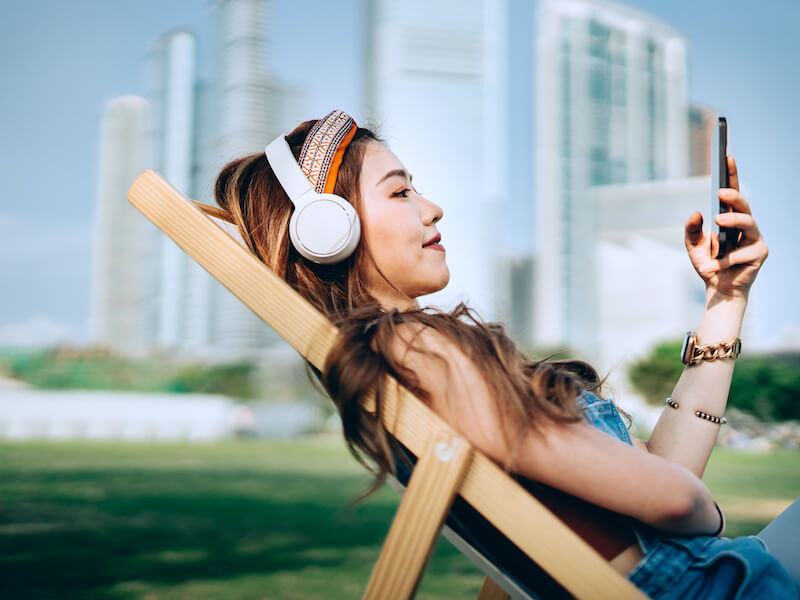
Music is a major part of Aiden’s life. While he’s out running, he’s listening to Pandora, while working it’s Spotify, and he has a playlist for everything he does: cardio, cooking, gaming, you name it. His headphones are just about always on, his life a completely soundtracked affair. But lasting hearing damage may be happening due to the very loud immersive music he enjoys.
There are ways to listen to music that are healthy for your ears and ways that are not so safe. But the more hazardous listening choice is frequently the one most of us choose.
How does listening to music lead to hearing loss?
Your ability to hear can be compromised over time by exposure to loud noise. Typically, we think of aging as the main cause of hearing loss, but more and more research indicates that it’s really the accumulation of noise-induced damage that is the issue here and not anything inherent in the aging process.
It also turns out that younger ears are particularly vulnerable to noise-related damage (they’re still developing, after all). And yet, younger adults are more inclined to be dismissive of the long-term risks of high volume. So because of extensive high volume headphone use, there has become an epidemic of hearing loss in younger people.
Can you enjoy music safely?
It’s obviously hazardous to listen to music at max volume. But simply turning down the volume is a safer way to listen. The general recommendations for safe volumes are:
- For adults: No more than 40 hours of weekly listening on a device and keep the volume lower than 80dB.
- For teens and young children: You can still listen for 40 hours, but the volume should still be below 75dB.
About five hours and forty minutes per day will be about forty hours every week. That may seem like a lot, but it can go by rather quickly. But we’re trained to keep track of time our entire lives so most of us are pretty good at it.
The harder part is keeping track of your volume. On most smart devices, computers, and televisions, volume isn’t measured in decibels. It’s calculated on some arbitrary scale. Maybe it’s 1-100. Or it might be 1-10. You may not have any idea how close to max volume you are or even what max volume on your device is.
How can you monitor the volume of your tunes?
It’s not very easy to tell how loud 80 decibels is, but fortunately there are some non-intrusive ways to tell how loud the volume is. Distinguishing 75 from, let’s say, 80 decibels is even more puzzling.
That’s why it’s highly suggested you use one of many free noise monitoring apps. These apps, widely available for both iPhone and Android devices, will provide you with8 real-time readouts on the noises around you. In this way, you can make real-time adjustments while monitoring your real dB level. Or, while listening to music, you can also adjust your settings in your smartphone which will automatically tell you that your volume is too loud.
The volume of a garbage disposal
Generally, 80 dB is about as noisy as your garbage disposal or your dishwasher. So, it’s loud, but it’s not that loud. It’s a significant observation because 80dB is about as loud as your ears can take without damage.
So pay close attention and try to avoid noise above this volume. If you do listen to some music beyond 80dB, don’t forget to limit your exposure. Maybe minimize loud listening to a song instead of an album.
Listening to music at a loud volume can and will cause you to have hearing issues over the long run. You can develop tinnitus and hearing loss. The more you can be aware of when your ears are going into the danger zone, the more educated your decision-making can be. And hopefully, those decisions lean towards safer listening.
Contact us if you still have questions about the safety of your ears.
